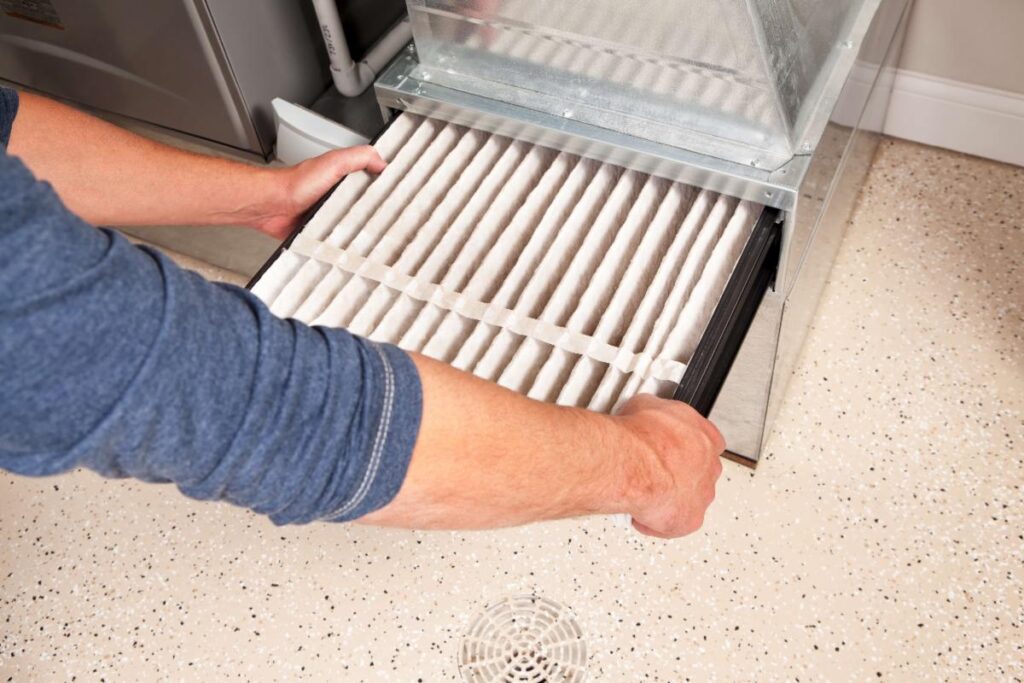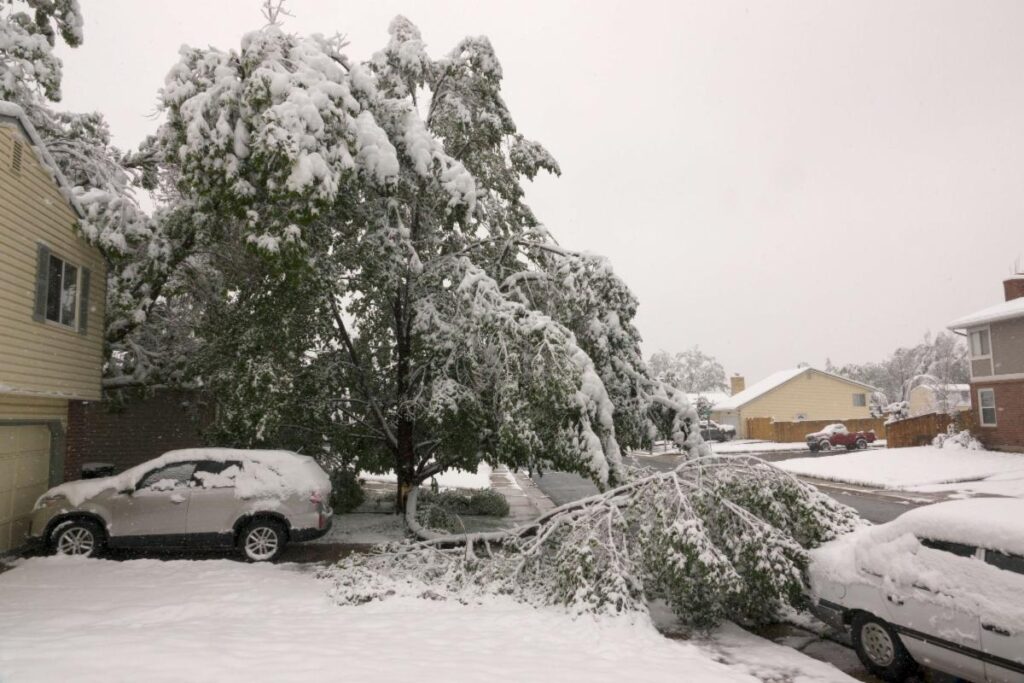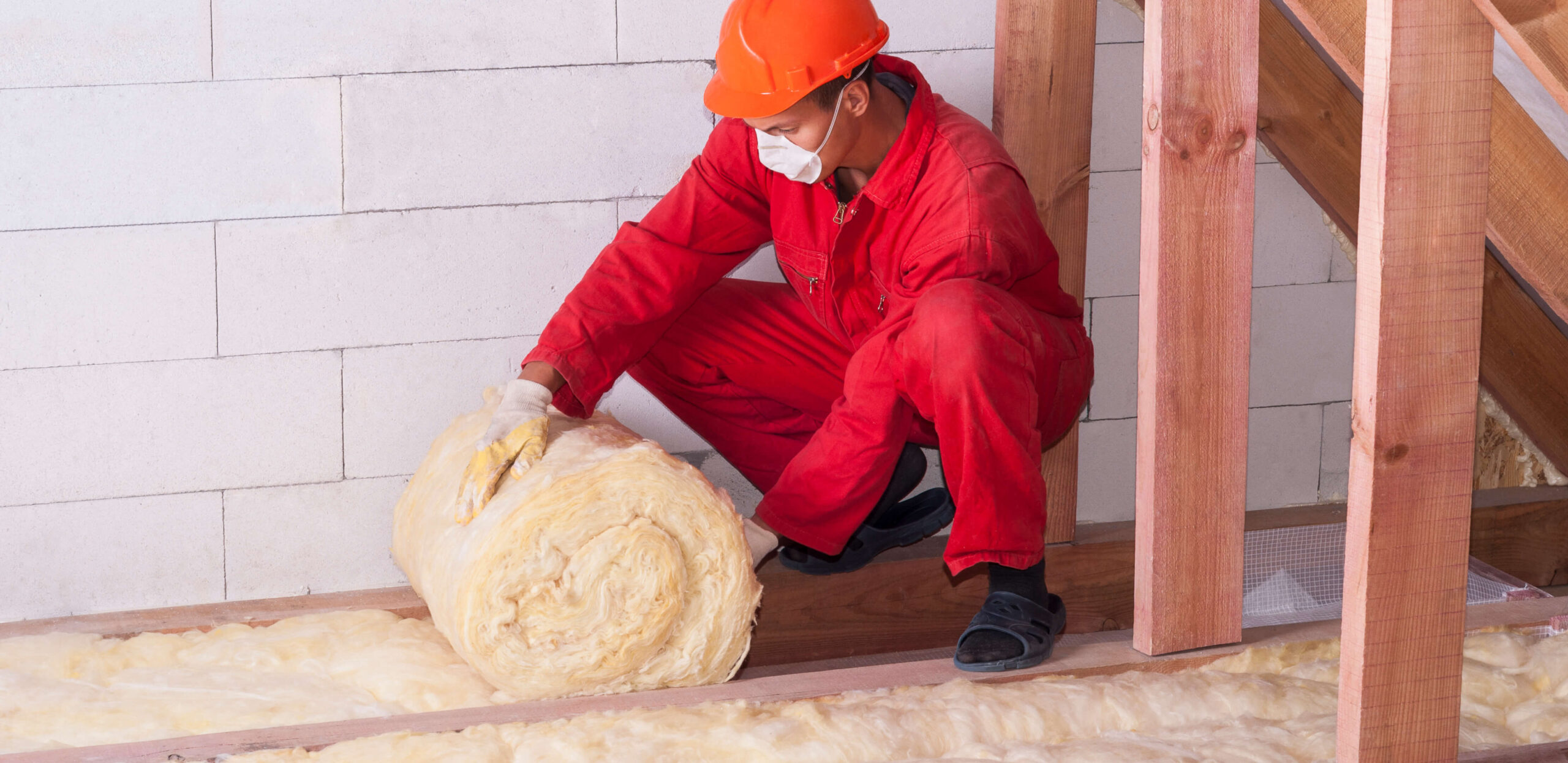It’s snowy and cold outside. But don’t just sit on the couch! Take advantage of this indoor time by addressing some issues that can help make your home more cozy, comfortable and energy efficient and you and your family safer.
1. Are Your Energy Dollars Escaping?
Sure, your attic is probably insulated, but the access hatch or stairs may not be. This is a major area of heat loss in most homes. Unless you have a walk-in attic, chances are your attic access is some sort of trap door in the ceiling, maybe fitted with a set of fold-down stairs. It’s likely the access door is not insulated. That’s a problem: there’s nothing to stop the climate-controlled air (heated in winter, cooled in summer) from escaping through this access panel. The easiest fix against a thermal leak is to cover the backside of this access with fiberglass insulation. This helps keep conditioned air from leaking into the attic. Your local family-owned hardware store can supply you with most any type of insulation and sealant you need. If you’re not handy, schedule insulation installation with Get Dwell. We’ll help you hold on to more of those energy dollars.
2. Breathe Easier
An EPA study of human exposure to air pollutants indicates that indoor levels of pollutants may be two to five times — and occasionally more than 100 times — higher than outdoor levels. We spend approximately 90% of our time indoors. If you live in a home that’s heated or cooled using ductwork and forced air, you should take a serious look at your indoor air quality. The microscopic dust and debris that collects in these systems is mostly human and pet dander (ugh!), construction and environmental debris. Under the right conditions with the right level of moisture, these organic lifeforms multiply and grow and end up in the air you breathe. Your best defense is a good offense. If you’re not the original owner of the house and have not gotten your ductwork cleaned, now is the time. If you own a dog or cat or have had a remodeling project done and have not had your ductwork cleaned recently, now is the time. It is critically important for the health of you and your family to keep this ductwork and your home’s air systems clean. Schedule an appointment for ductwork cleaning.
3. Assess the Attic
Your home’s building envelope is designed to separate the indoors from the outdoors and the one in your house acts a lot like the hat on your head. If your house is not bundled up with a good hat on its head, you’ll have a more cold, drafty and uncomfortable house. You’re also likely to be wasting more money on your energy bills. We use whatever insulation is best for your home’s attics, walls, basements and crawlspaces, e.g., spray foam, fiberglass batt, ROCKWOOL®, blown-in insulation or other safe, effective, environmentally-friendly materials. Let us help make your home more comfortable and energy efficient. Contact us here to schedule an attic assessment.
4. Keep Air Quality High, Energy Bills Low
Furnace filters have a large impact on the performance of your HVAC system and your thermostat. Filters are designed to trap dust and airborne particles as air is drawn through the filter and into the furnace system. A clean furnace filter keeps your HVAC system running smoothly, which can lead to lower electricity and gas bills and better air quality. Clogged filters not only negatively impact the air quality in a home, but also force the furnace to work harder to draw air into the system, thus shortening the useful life of the furnace. The general rule is to change a furnace filter — usually located behind a return-air vent or in a slot on the furnace itself — at least once every 90 days.

Changing the filter is easy: Simply loosen the screws that hold the filter cover in place (if it’s located behind a return-air vent); or pull the filter out from a slot (if it’s on the side of the furnace). The old filter will be dirty, so have a large trash bag ready. Used furnace filters can be discarded along with your regular trash. Insert the replacement filter into the empty slot and mark your calendar for the next replacement in three months.
How often should you change your furnace filter? Check your furnace owner’s manual. Many filter manufacturers also provide recommendations on how often their product should be replaced. No two homes are the same, so despite the recommendations of the furnace or filter manufacturer, one good way to determine if the filter needs changing is to inspect the filter: If it’s gray and covered in dust and lint, it’s time to replace it. Northern dwellers whose furnaces don’t get a break for months may want to change their filter more often, because more air is being drawn through the filter, and it will clog more quickly. Visit your local family-owned hardware store — they carry many brands and sizes of furnace filters and can help you get what you need.

5. Emergency: Winter!
If you live in an area with harsh winter weather a winter storm emergency kit is an absolute must-have. Keep you and your family safe and prepared by putting together an emergency weather kit that’s ready in the event of a power outage that knocks out your electric and heat. Your kit should include:
- Bottled water (minimum three-day supply)
- Non-perishable food (minimum three-day supply)
- Flashlights and extra batteries (headlamps are very useful)
- Candles and matches or a lighter
- Battery-powered radio (with extra batteries)
- First aid supplies
- Warm blankets
- Extra jackets and sweaters
- Sand, rock salt, or non-clumping cat litter to help melt ice
It’s also a good idea to keep a winter emergency kit in each of your vehicles.
6. Be Wary of Winter’s Wrath
Remember the polar vortex of January 30-31, 2019? The temperature recorded at Chicago O’Hare Airport was -23 F. How about the recent bomb cyclone? -12 F. real temp, -42 F. wind chill. Yikes! Pay attention to weather forecasts so you have plenty of time to prepare if a winter storm is on the horizon. Have your home and car emergency kits ready to go at all times. Make sure your car’s maintenance is up to date and make sure to keep your gas tank full in case you need to leave your home. One common reason cars struggle to start in cold weather is blocked-up fuel lines. These tubes are thin, and if there’s any moisture in them when temperatures drop to extreme levels, they can freeze, causing blockages that prevent fuel from flowing. Gasoline, on the other hand, doesn’t freeze as easily, maintaining its liquid state in subzero temperatures.

7. What’s the Temp?
For the seniors in your life, it’s always a good idea to have a large, easy-to-read thermometer in a prime location inside the home. Older people may not feel temperature differences as easily, which can cause serious health issues, especially if they live alone. Having a thermometer and checking the temperature regularly can help them know when to bundle up or if there could be a potential heat loss problem in the home. Your local family-owned hardware store carries a variety of indoor thermometers. Consider investing in a thermometer that also indicates the outside temperature. An indoor/outdoor thermometer uses a sensor placed outside to wirelessly transmit measurement data to an indoor display. From the comfort of your home, you can get information about the outdoor temperature as well as wind speed, barometric pressure and other variables.
8. Stay in Hot Water
When it’s chilly outside, nothing sounds better than taking a shower or spending an hour (or two) in a bubble bath … unless that water is ice cold. Now’s the time of year when you really want to make sure your water heater is working properly. It doesn’t hurt to call in a professional to give your water heater a quick inspection, especially if you notice any of the following:
- Water leak from the water heater (deal with immediately)
- Dirty water (deal with immediately)
- No hot water
- Slower water heating
- Water is too hot
- Drop in water pressure
- Circuit breaker is tripped when the water heater is active
Contact Get Dwell to schedule service on your water heater.

9. Take care of low-hanging branches
Trees surrounding your home can cause severe damage to your house and even cause you to lose power — the weight of snow after a storm can cause limbs to snap or bring the entire tree down on your home or power lines. Before it snows, have the tree’s health checked and remove any dead limbs — or any that could cause serious damage if they fell.
10. Deep Down Clean
If your family tends to spend more time indoors during the colder season, it’s a good idea to do a deep clean of your home. Deep cleaning addresses those areas in your home (such as your basement) that you tend to skip during your usual house cleaning routine. Let our professional house cleaners deep clean your basement — we will remove the cobwebs, wipe down surfaces and vacuum all the hard-to-reach places, including your crawlspace — getting your basement ready for the year ahead.
Hope you stay warm and cozy this month!
